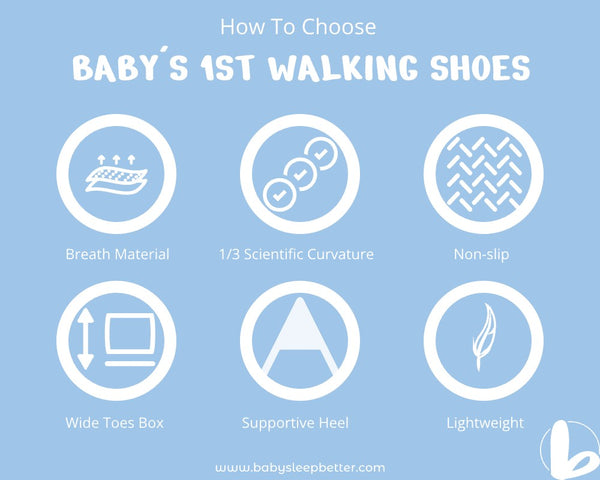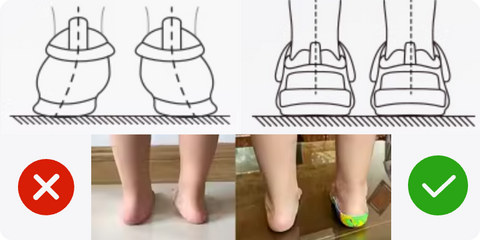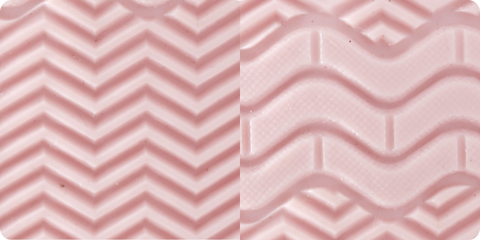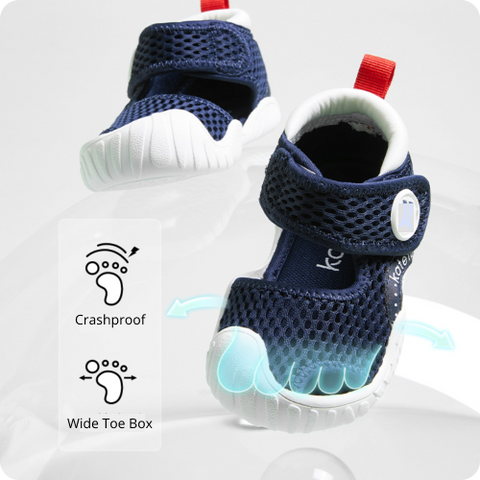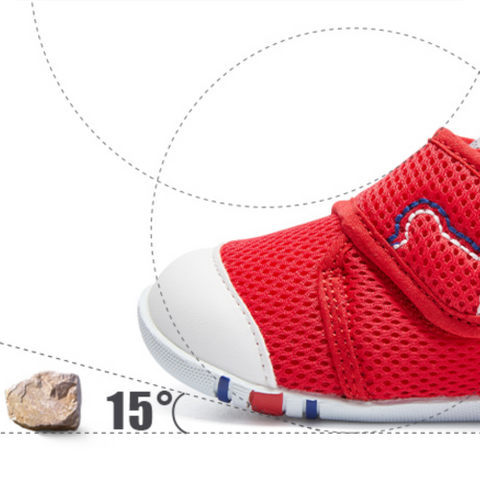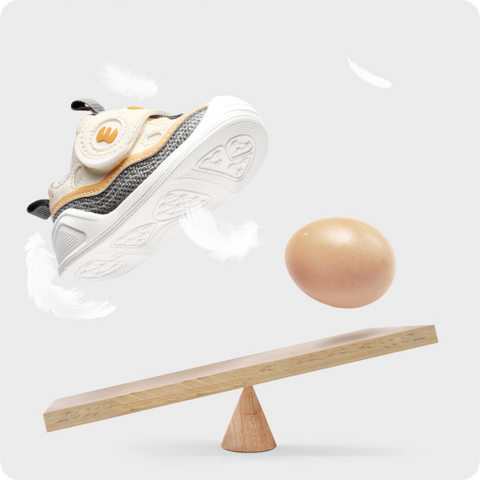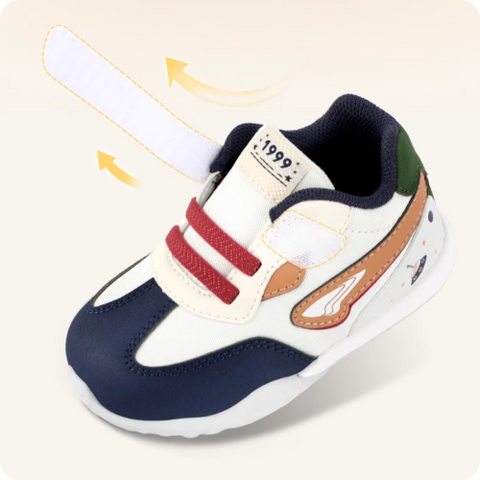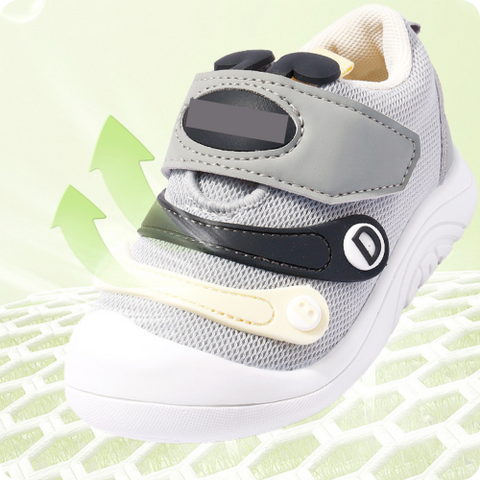Welcome, new parents! As your bundle of joy begins to explore the world on two feet, it’s time to gear up with the perfect pair of walking shoes. Think of it as their first real set of wheels—except these are for their adorable little feet. We’re here to guide you through the maze of baby footwear with a sprinkle of humor and a whole lot of care.
Table of Contents
- Introduction
- Understanding Baby’s Walking Stages
- Choosing the Right Walking Shoes
- Conclusion
Understanding Baby’s Walking Stages
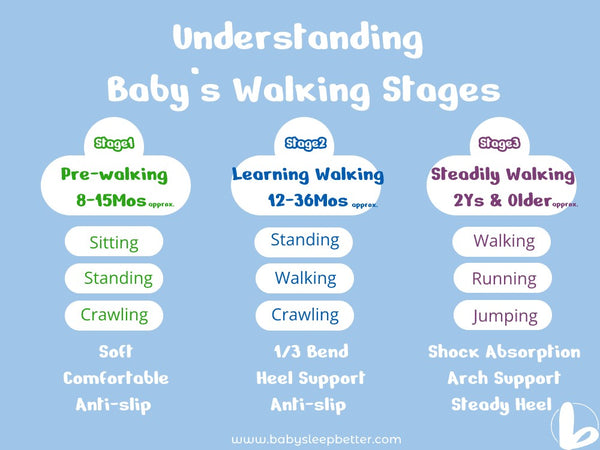
Stage 1: Pre-walking
Your little one is just getting the hang of standing and might take a few daring steps. It’s all about balance and lots of cute, cautious movements.
Stage 2: Learning Walking
Those first few steps have turned into a brave, wobbly walk. Your baby is learning and growing, and their shoes should support every little victory.
Stage 3: Steadily Walking
Your toddler is off and running, well, walking confidently at least. Now’s the time for shoes that can keep up with their non-stop energy and provide safety for all their adventures.
8 Tips for Choosing the Perfect Walking Shoes
When it comes to selecting your baby’s first walking shoes, think of it as equipping a superhero for their first mission. It’s all about giving them the power (and comfort) to explore their world. Here’s what to look for:
Flexibility and Support
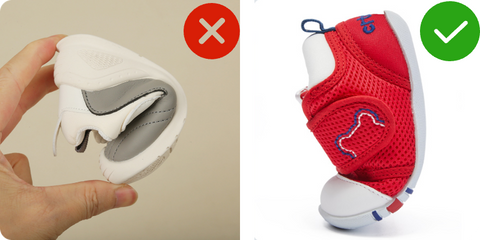
Bend correctly at a 1/3 angle and reinforce the arch.
The perfect shoe bends with grace but also holds its ground. It should mimic the natural flexibility of bare feet while providing gentle support. Look for shoes that bend at a 1/3 angle at the ball of the foot, where your baby’s feet naturally flex. This encourages proper foot development and makes those first steps a little less wobbly.
Heel and Ankle Stability
Reinforced heel support with standard vertical force.
Just like a young sapling needs a stake to grow straight, your baby’s developing feet need a sturdy heel counter. It should be firm enough to hold the heel in place but not so rigid that it hinders movement. This balance ensures your baby’s tiny feet are well-supported for those tentative steps.
Grip and Safety
Patterned sole is waterproof and slip-resistant for a firmer grip.
The outsole of the shoe should be your baby’s best friend, ready to catch them when they slip. A patterned sole not only adds a fun touch but also provides essential traction on slippery surfaces. Waterproofing is a bonus, protecting against puddles and spills, because let’s face it, babies are magnetically drawn to messes.
Toe Protection
Crash-proof toe design with wide space.
Babies are curious creatures, and their toes often lead the charge. A wide toe box allows for natural movement and growth, while a crash-proof design protects against the inevitable bumps along the way. It’s like a helmet for their toes, cushioning every stumble and step.
Comfortable Fit
Science upturned 15° but no more than 0.8 inches.
A shoe that’s too tight can cramp your baby’s style (and toes), while one that’s too loose can trip them up. Aim for a snug fit that allows for a thumb’s width of space from the longest toe to the end of the shoe. This ensures room for growth and plenty of wiggle room for those tiny toes.
Lightweight Design
Lightweight shoe reduces foot stress.
Heavy shoes can drag down your baby’s natural stride. A lightweight shoe encourages a more natural walking pattern and makes it easier for your baby to lift those feet. It’s like walking on clouds, with every step feeling effortless and free.
Adjustability
Adjustable opening for chubby feet
Babies’ feet come in all shapes and sizes, and sometimes they can be as chubby as a teddy bear. Look for shoes with adjustable closures, like Velcro or laces, that can adapt to the unique shape of your baby’s feet. This ensures a custom fit that’s just right for them.
Breathability
Breathable and sweat-wicking anti-bacteria.
Last but not least, shoes should be made of breathable materials that wick away moisture. This keeps your baby’s feet dry and comfortable, reducing the risk of blisters and other skin irritations. It’s like a breath of fresh air for their feet, keeping them cool and happy.
Remember, the right shoes can make all the difference in your baby’s walking journey. They provide the foundation for those precious first steps and set the stage for many more to come. So take your time, consider these tips, and choose a pair that will support your little one’s adventures, every step of the way. Happy shoe shopping!


